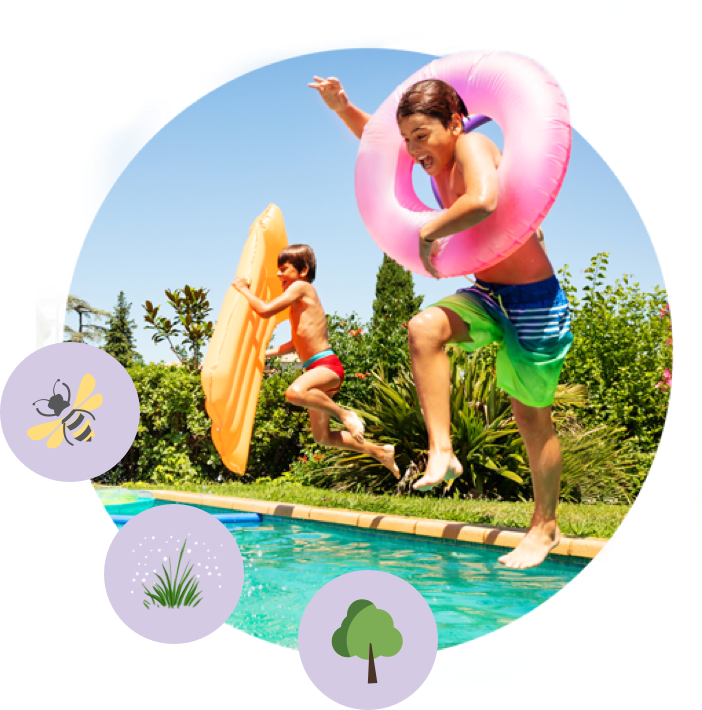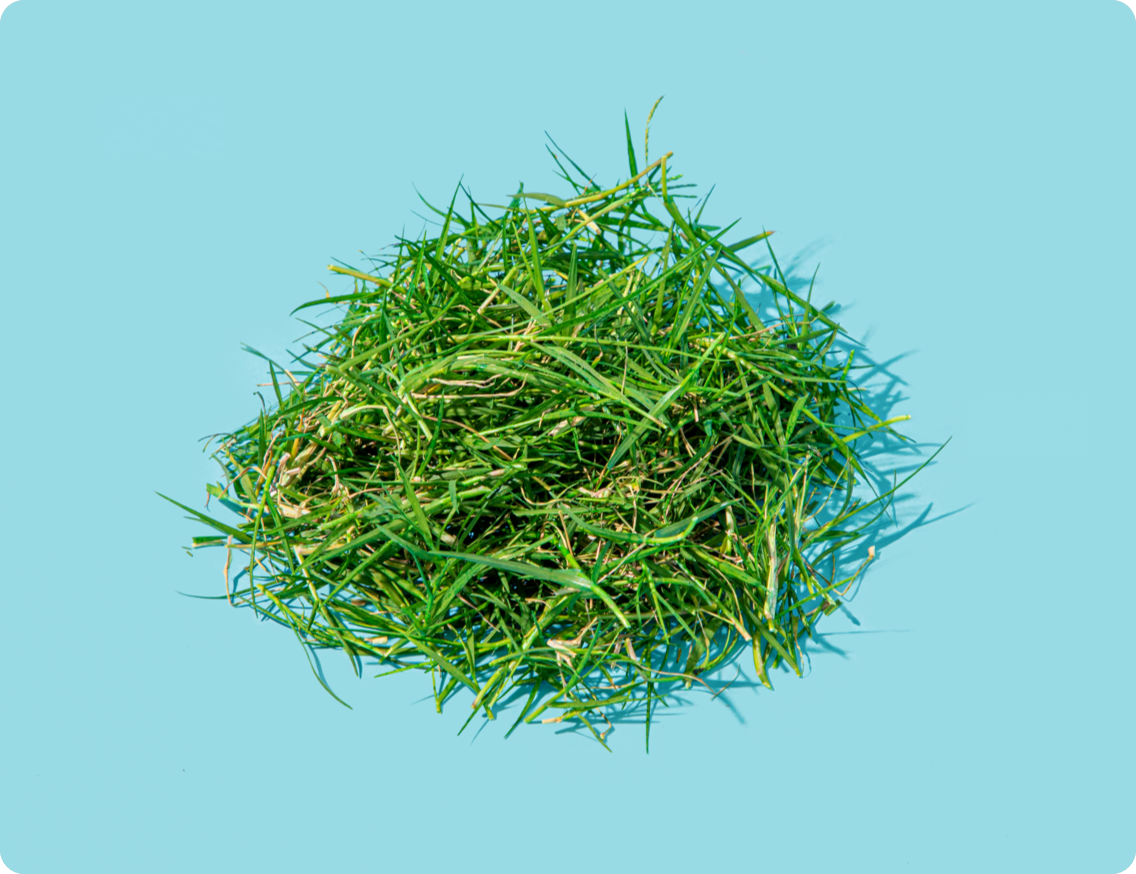Resources for Medical Professionals
Learn more about common allergic diseases, symptoms, management paradigms, and testing considerations.
Is your patient a candidate for specific IgE testing?
Get detailed information on whole allergens and allergen components.
Ready to test a patient?

Resources for Medical Professionals
Learn more about common allergic diseases, symptoms, management paradigms, and testing considerations.
Is your patient a candidate for specific IgE testing?
Get detailed information on whole allergens and allergen components.
Ready to test a patient?
Summer Allergies
Causes, Symptoms, and Testing
While spring allergy season gets a lot of attention, summer allergies are also a thing. It is a season reserved for relaxation and outdoor time to the max, but it can also bring its version of allergy triggers and symptoms. A mix of pollen and year-round allergens, summer allergy season is between the peak of tree pollination and the start of fall weed pollination.1

What Causes Summer Allergies?
Embracing the joys of outside fun in the summer sun can mean dealing with the pesky reality of increased allergen exposure. The most common allergy triggers during summer months include ragweed, certain types of tree pollen and grass pollen, insect bites, and some molds.1 You have to first be exposed to an allergen to become allergic to it.2,3 If an allergy develops, your body will produce IgE antibodies as an immune response because it thinks the allergen is an invader, causing your allergy symptoms.2
Tree, Grass, and Weed Pollen
Different types of trees, like maple, sycamore, and elm, can trigger summer allergies. Ragweed, wall pellitory, English plantain, and grasses such as Kentucky bluegrass, ryegrass, and Timothy grass also release pollen during this season.
Mold
Not commonly associated with outdoor seasons, mold, also called mildew, can be found outdoors on plants and in water, and indoors in places like the bathroom and kitchen. Summer rain and humidity provide the perfect damp environment for mold spores to prosper. The prevalence of mold varies by region and climate.
Insect Venom
Those uninvited guests to your outdoor picnics, insects with venom, such as bees and wasps, are common in the summer with blooming flowers and warm weather. An allergic reaction to insect venom can be severe and may lead to anaphylaxis.
Summer Allergy Symptoms
Allergy symptoms seen in the summer can occur indoors or outside and can be like symptoms you may experience in the spring.
Common summer allergy signs and symptoms include:
| Runny nose | Watery eyes |
| Sneezing | Coughing |
| Itchy eyes and nose | Dark circles under your eyes |
Related Summer Topics
Summer Allergy Testing and Management
From barbecues to beach waves, don’t let allergy symptoms dull your bright summer days. To help find relief, you first need to know what may be causing reactions. Although spring and summer allergy symptoms are similar, the key difference lies in the specific allergens that trigger these symptoms during each season.
How Do You Get Tested for Summer Allergies?
You don’t need to wait all summer long to get an appointment with a specialist. One of the most common ways to get tested for allergic sensitization is to speak to a healthcare provider about specific IgE blood testing, which measures the number of allergen-specific antibodies in your blood. Depending on the levels of different antibodies, a healthcare provider can help you understand the potential cause of symptoms and how to mitigate exposure to them.


Tips to Help Manage Summer Allergies
By understanding and managing allergy symptoms, you can savor the summer season without being sidelined by sneezing and coughing. Work together with your healthcare provider to make a trigger-avoidance plan:1
Monitor pollen and mold counts.
Keep windows and doors shut at home and in your car during allergy season.
Change your clothes after you’ve been working or playing outdoors.
Wear a NIOSH-rated 95 filter mask when mowing the lawn or doing outdoor chores.
For more in-depth exposure reduction tips for each type of allergy, check out these Allergen Fact Sheets.

Summer Allergies Can Be Managed
Antihistamines may not always be the best option to help manage symptoms, especially if you haven’t been confirmed you’re allergic.
In fact, in one study, 65% of people with allergy symptoms who used antihistamines were not allergic, meaning they may be wasting money and time trying to find relief.4
Speak to your healthcare provider about getting specific IgE blood testing to get more clarity into what might be causing your summer symptoms and inform your search for relief.
Resources for healthcare providers
Specific IgE testing for summer allergies
Healthcare providers, click below, to learn more about how specific IgE blood testing can help in diagnosing seasonal allergies.
Practice parameters and guidelines
View practice parameters and guidelines for allergic rhinitis you may see in patients during summer allergy season.

Allergen Encyclopedia
Explore our allergen encyclopedia, an easily shareable, patient-friendly resource that includes information on which pollen might be causing seasonal allergies as well as how they may impact food allergies and influence patient management plans.
- https://acaai.org/allergies/allergic-conditions/seasonal-allergies/. Accessed Feb. 2024.
- Yoo Y, Perzanowski MS. Allergic sensitization and the environment: latest update. Curr Allergy Asthma Rep. 2014 Oct;14(10):465.
- Cox L, Williams B, Sicherer S, Oppenheimer J, Sher L, Hamilton R, Golden D; American College of Allergy, Asthma and Immunology Test Task Force; American Academy of Allergy, Asthma and Immunology Specific IgE Test Task Force. Pearls and pitfalls of allergy diagnostic testing: report from the American College of Allergy, Asthma and Immunology/American Academy of Allergy, Asthma and Immunology Specific IgE Test Task Force. Ann Allergy Asthma Immunol. 2008 Dec;101(6):580-92.
- Szeinbach SL, Williams B, Muntendam P, O'Connor RD. Identification of allergic disease among users of antihistamines. J Manag Care Pharm. 2004 May-Jun;10(3):234-8.


